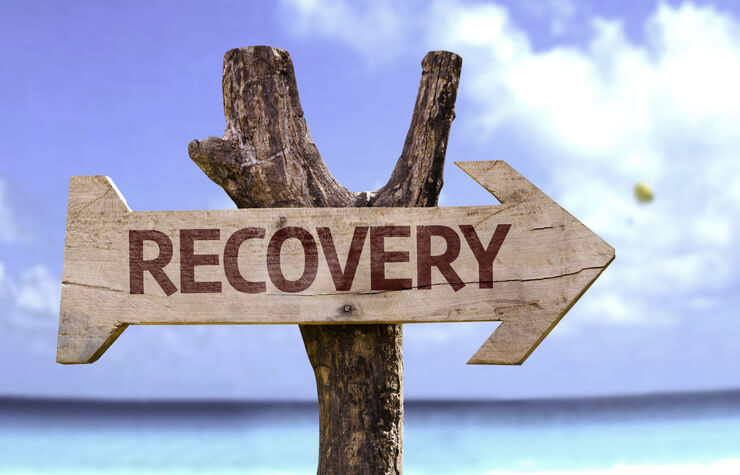Family Roles in Addiction Recovery
The support of family can play a major role in the success of addiction recovery. Learning more about the importance of family roles in addiction recovery and how a family is involved in the treatment process can be hugely beneficial.
Addiction affects the whole family of the user; recovery is not only for the addict to become sober but also for the family to heal. If your family member is in treatment for addiction, you may be wondering how things will be once they’re in recovery. Will everything go back to normal? Will there still be stress and tension in the household?
Recovery is a wonderful and scary time for the addict and those who love them. If you’re wondering how to better their chances for success, you’re not alone. Family roles in addiction recovery are hugely important to the addict’s sobriety. Keep reading to find out how your family can rebuild its bonds and heal together.
Assess Bad Habits

Families often struggle with finding supportive behavior while their loved one is using. It’s not uncommon for some family members to become enablers or co-dependent with the user.
Enabling
If your loved one was engaging in risky behavior, it may have been tempting to allow them to use it at home to protect them from using it somewhere unsafe. This is one example of enabling. Enabling is when you intentionally or unintentionally support their addiction through your actions.
Family members are often guilty of developing this bad habit because they’re desperate to protect and support their loved ones but don’t know-how. It’s a habit that cannot exist when they return from treatment. Their recovery depends on your ability to stay strong in your support of sobriety and create consequences for crossing boundaries.
Co-Dependency
When you become so involved and consumed by your loved one’s addiction that you neglect your own well-being and self-care, you are creating a co-dependent relationship. If you can’t take care of yourself, you’re less effective in helping your family. This is dangerous for the whole family if members enter a co-dependent relationship and it needs to be addressed before the loved one returns home.
Understand the Addiction
It’s important to understand that addiction is a chronic disease that happened to your loved one- they didn’t choose to become addicted. Treating the situation like the illness it is will help you improve your perspective and expectations.
Addiction affects every aspect of the addict’s life. And, it will be a lifelong process to maintain sobriety. Family members need to understand that their child/brother/sister could potentially relapse during recovery and that’s normal. There’s no cure for addiction; it’s often a “two steps forward, one step back” process. Preparing the whole family for potential relapses and knowing what to do when that happens is crucial.
Be Supportive
If your recovering family member will be living at home with the family, there are multiple things you can do to show your support. First, banish all alcohol and recreational drugs from the home. This removes the temptation for them to use and makes your home a positive, safe space. Remove all judgment from your perspective. Understand that your loved one is on a journey just as you are on yours. Approach their actions with love, compassion, and a genuine desire to help.
Help Find Resources
Addiction not only affected your loved one’s health and safety, but it likely infected all other aspects of their life. A practical and appreciated way to show support is to help them find resources to get other facets of their life back on track.
Many addicts enter recovery, such as Arista Recovery, with debt and other financial problems. You can help them organize their finances and lay out the steps to get out of debt. Consider talking to a financial specialist who’s trained in working with recovering addicts.
You could also help them find an appropriate job when they come back, work through legal issues, improve their health, and support them as they rebuild relationships.
Those are a lot of life categories that need focus and attention; it’s normal for recovering addicts to feel highly stressed and overwhelmed. However, since those emotions can be triggering, the family plays a crucial role in supporting them and helping them cope with stress.
Online consultations like suboxone clinics that cater to people with opioid-use disorder (OUD) can help since family members are still beside those people whenever needed.
Consider Family Therapy
Family therapy has been extremely helpful in recovering addicts maintaining their sobriety, and for the family to heal. If you decide to take this step with your family, seek out a therapist who is experienced with post-addiction counseling for families.
And, remember that each family member has their own experience and feelings about the addiction based on how it affected them. Everyone might not be on the same page, and that’s okay. Come as you are to therapy and allow each person to express how they feel.
Family therapy is hugely beneficial in reconnecting families, aiding in forgiveness, and creating new bonds. This rehab provides treatment for the family through support groups, family education programs, and a network for families.
Support Yourself
In addition to family therapy, you may want to consider personal therapy. Your unique experience with addiction can be tightly connected to other issues in your personal life. Working through this connection with a therapist can help you heal.
As mentioned above, you can’t help others if you don’t take care of yourself first. Make self-care a priority; every day, do one thing that brings you joy. It could be meditating, watching your favorite show, or massaging your feet.
Even though your loved one is going through an issue that has the focus of the whole family doesn’t mean your problems don’t matter. You are not defined by your loved ones using, so remember to keep living life for yourself.
Want to Learn More about Family Roles in Addiction?
Your loved one’s recovery is a sensitive and crucial time that involves the whole family. Having a strong support system is a major factor in their success. Follow the tips above to ensure your family roles in addiction are supportive. Each member has their own wounds, experiences, and trials that deserve to be worked through. To learn more, explore our blog.





















